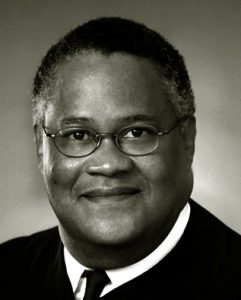“Courts created under Article III of the United States Constitution are not concerned with political victories or who may or may not “win.” Instead, it is the Court’s job to make sure the Constitution wins.”
That may be the most straightforward and correct statement of law made by any of the myriad judges involved in the massive number of lawsuits generated by people viscerally opposed to President Donald Trump.
Judge Morrison England wrote an opinion with many common sense statements while disposing of the “law” signed by California Governor Gavin Newsome on July 30, 2019. The “law”[1] which required anyone wishing to be on the ballot for a California presidential primary to provide five years of personal tax returns.
 The California Presidential Tax and Transparency Act was clearly designed to address California’s irritation at President Trump’s decision to not release his tax returns. The Act required, among other things, presidential candidates in the California primary to have disclosed their federal tax returns for the previous five years as a precondition to appearing on the State’s partisan primary ballot.
The California Presidential Tax and Transparency Act was clearly designed to address California’s irritation at President Trump’s decision to not release his tax returns. The Act required, among other things, presidential candidates in the California primary to have disclosed their federal tax returns for the previous five years as a precondition to appearing on the State’s partisan primary ballot.
The Qualification Clauses of the Constitution
Since the Constitution went into effect in 1789, there have been thousands of Supreme Court opinions that have sliced and diced multiple constitutional clauses and “evolving”[2] interpretations. Rare among constitutional provisions that have never undergone any evolution whatever are those that set the qualifications for holding federal elective office. These are known as the Qualifications Clauses. They are:
Art. I, Section 2, clause 2 requires members of the House to be 25 years old, seven years a citizen, and live in the state they represent.
Art. I, Section 3, clause 3, requires members of the Senate to be 30 years old, nine years a citizen and live in the state they represent.
Art II, Section 1, clause 5, requires the president to be 35 years old, a natural born citizen, and fourteen years a resident.
Over time states have tried to impose other qualifications for congressional service, such as term limits. Justice Lewis Powell, put it quite simply in U.S. Term Limits Inc. v. Thornton. “If the qualifications set forth in the text of the Constitution are to be changed, that text must be amended.”
With the guiding principle that there is no authority beyond amendment to add or subtract to the requirements to hold federal office, Judge England made short work of the California effort to require disclosure of tax returns to be listed as a candidate for president on a primary ballot in California.
The Act Invalid on Not 1, Not 2, Not 3, but 4 Grounds
Though clearly California was trying to add a “qualification” beyond those in the Constitution, England wanted to send Governor Newsome, Attorney General Becera and California legislators a clear message, he listed FOUR reasons the law was invalid:
- Violation of the Qualifications Clause
- Violation of the First Amendment right to express political preferences
- Violation of the Fourteenth Amendment Equal Protection Clause (no tax return requirement for independent and write-in candidates.)
- Preemption by the federal Ethics In Government Act which requires federal officers to disclose the “source, type, and amount or value of income”; honoraria from any source; dividends, rents, interest, and capital gains, and interests in property; the “entity and category of value of the total liabilities owed to any creditor”; and the identity of all positions held “as an officer, director, trustee, partner, proprietor, representative, employee, or consultant of any corporation, company, firm, partnership, or other business enterprise, any nonprofit organization, any labor organization, or any educational or other institution.” The EIGA expressly “supersede[s] any general requirement under any other provision of law or regulation with respect to the reporting of information required for purposes of preventing conflicts of interest or apparent conflicts of interest.”
 The California Act violates three constitutional provisions and a federal statute. In ruling that there were FOUR reasons the Act was invalid, Judge England sent a clear message to the law’s sponsor, State Senator Mike McGuire.
The California Act violates three constitutional provisions and a federal statute. In ruling that there were FOUR reasons the Act was invalid, Judge England sent a clear message to the law’s sponsor, State Senator Mike McGuire.
“Some of the brightest constitutional minds…”
Senator McGuire said: “Some of the brightest constitutional minds in the nation have been very clear that this law will withstand a constitutional test.”[3] Senator McGuire has not named any lawyer or scholar in support of that statement. It appears the California political establishment wishes to pursue the matter as California Secretary of State Alex Padilla said he will appeal the ruling.
Judge England made no policy choices in his ruling. He did not decide on whether the California effort to impose a new burden on candidates for president was a good or bad idea. He pointed to the Constitution’s clear mandate in the matter and said California had no legal authority to add to the constitutional qualifications to run for president.
THE CONSTITUTION WINS
In his ruling, the judge followed the law as written, and the Constitution won.
_________________________________________________________________________________________________
[1] The term “law” is in quotes, since an act that is passed without constitutional authority was never a “law” to begin with. Hubbard v. Lowe
[2] This relates to the misguided idea of a “living” Constitution, which simply allows judges to arrogate to themselves power they were never given. Justice Scalia rebutted this best when he clearly and succinctly explained why the Constitution was a dead document.
[3] In another rebuke to Senator McGuire, Judge England pointed out that former California Governor Jerry Brown vetoed a similar measure in 2017, explaining that it was likely unconstitutional and that California’s Office of the Legislative Counsel—a nonpartisan public agency concluded the bill would be “unconstitutional if enacted.” Never the less, the California Legislature and Governor Gavin Newsom determined that it would be a good use of their time to pass a law and defend it though it was doomed to failure in the courts. Mr. Padilla apparently believes its worth additional time, effort and taxpayer money to pursue a futile appeal.






